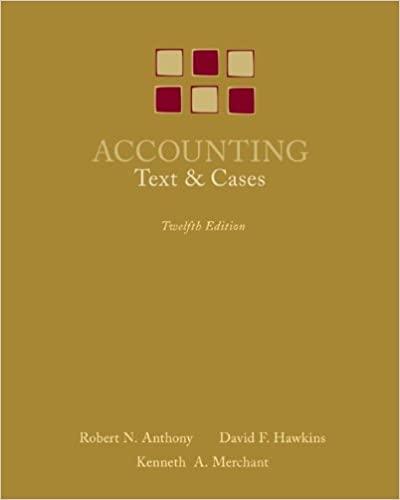Question
1. Liam OConnor is an accounting major at the Isenberg School of Management, University of Massachusetts, Amherst. One month into the semester he is forced
1. Liam OConnor is an accounting major at the Isenberg School of Management, University of Massachusetts, Amherst. One month into the semester he is forced to take a leave of absence from studies due to personal reasons, and writes a detailed letter to his professor/advisor explaining the circumstances of his decision to discontinue his studies. The medium of this communication between Liam and his professor is considered to be lean because ______. A. Liam cannot receive a response from his professor immediately B. the nature of the content of the communication is highly personal C. Liam offers well-explained reasons for his decision to discontinue the course D. a letter is a relatively more expensive mode of communication than e-mail
2.
15. ______ refers to the ultimate state in which not only the flow of goods and services, capital, and knowledge across country borders already exists, but where countries from the rapidly emerging nations (e.g., the BRICS countries), are now competing head-to-head with countries from developed nations. A. Marketing B. Globalization C. Globality D. Entrepreneurialism
.When a manager is planning for change, to which of the following questions would the issues of participation and incentives pertain most closely?
A. How soon is change needed? B. How can support for the change be developed? C. What support will be critical for success? D. How should the change be communicated?
A manager is considering three staff members as possible candidates for a new position. One morning, she asks each of them, in private, whether they might be interested in taking up the post. She also asks them not to discuss the offer with anyone. At a function after work, several staff members ask her about the new position they have heard about on the grapevine. What feature of informal communication channels does this scenario illustrate?
a. They only carry work-related information.
b.They often transfer information rapidly.
c. They often transfer inaccurate information.
d. They tend to follow the organizational hierarchy.
Department A shows an annual after-tax profit of $400,000 from invested assets of $12 million. Department B shows an annual after-tax profit of $400,000 from invested assets of $8 million. Andi says Department A had the better financial performance; Bev Jones says B performed better; Chrissy Smith says their performance was equal; and Dan Bartlett says theres not enough information to make a determination about which department performed better. Andi Kawa says it dependsDe. Who is right?
A. Andi. B. Bev. C. Chrissy. D. Dan.
Step by Step Solution
There are 3 Steps involved in it
Step: 1

Get Instant Access to Expert-Tailored Solutions
See step-by-step solutions with expert insights and AI powered tools for academic success
Step: 2

Step: 3

Ace Your Homework with AI
Get the answers you need in no time with our AI-driven, step-by-step assistance
Get Started


